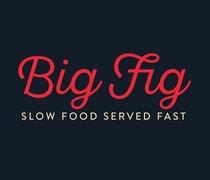Covid-19 spike - government responds

Staff Reporters
07 June 2024, 5:04 PM
 Health minister Dr Shane Reti has responded to the spike in Covid-19 cases.
Health minister Dr Shane Reti has responded to the spike in Covid-19 cases.A recent spike in Covid-19 case numbers had led the government to fund Health NZ/Te Whatu Ora $231.152M over four years to support ongoing Covid-19 preparedness.
The funding includes $192.912M for delivery of vaccines and PCR processing.
The latest figures show more than 5,000 cases of Covid-19 in the country; more than double the number of cases from the week before. Professor Michael Baker told RNZ the country is experiencing its highest peak in cases since December 2022.
Southern is one of the hardest hit regions, RNZ reported. There are currently 239 reported active cases in the Southern region.
Otago University Biochemistry Professor Kurt Krause told RNZ it was important to continue testing for Covid-19 so health experts knew if the cases were "a ripple" or "a major wave".
While he believed a major outbreak was unlikely, he said data on cases also helped to protect vulnerable people in the community such as those who were elderly or had compromised immunity.
The latest strain was a distant Omicron variant. Professor Krause said “good evidence” shows it is more contagious than previous strains, but evidence doesn’t suggest it is more dangerous than previous strains.
Professor Krause said he would like a culture to develop that people stayed home if they were sick to protect both themselves and their co-workers.
Health minister Dr Shane Reti said additional supplies of Covid-19 rapid antigen tests (RATs) will enable New Zealanders to continue testing this winter.
In January the government announced an extension of public access to free RATs until the end of June, but this week Dr Reti has confirmed Te Whatu Ora would purchase a further 9.25 million RATs, allowing free public access to RATs to continue until September 30.
“RAT testing is still an important method to support eligible people to access antiviral medications and reduce the impact of Covid-19 on hospital admission rates,” he said.
The Budget also provided an allocation of $38.240M to maintain pandemic surveillance, such as wastewater testing and whole genome sequencing. Covid-19 vaccines are free for everyone aged five and over; and Covid-19 antivirals also remain free and available for people with a higher risk of severe illness from the virus.
PHOTO: Supplied






